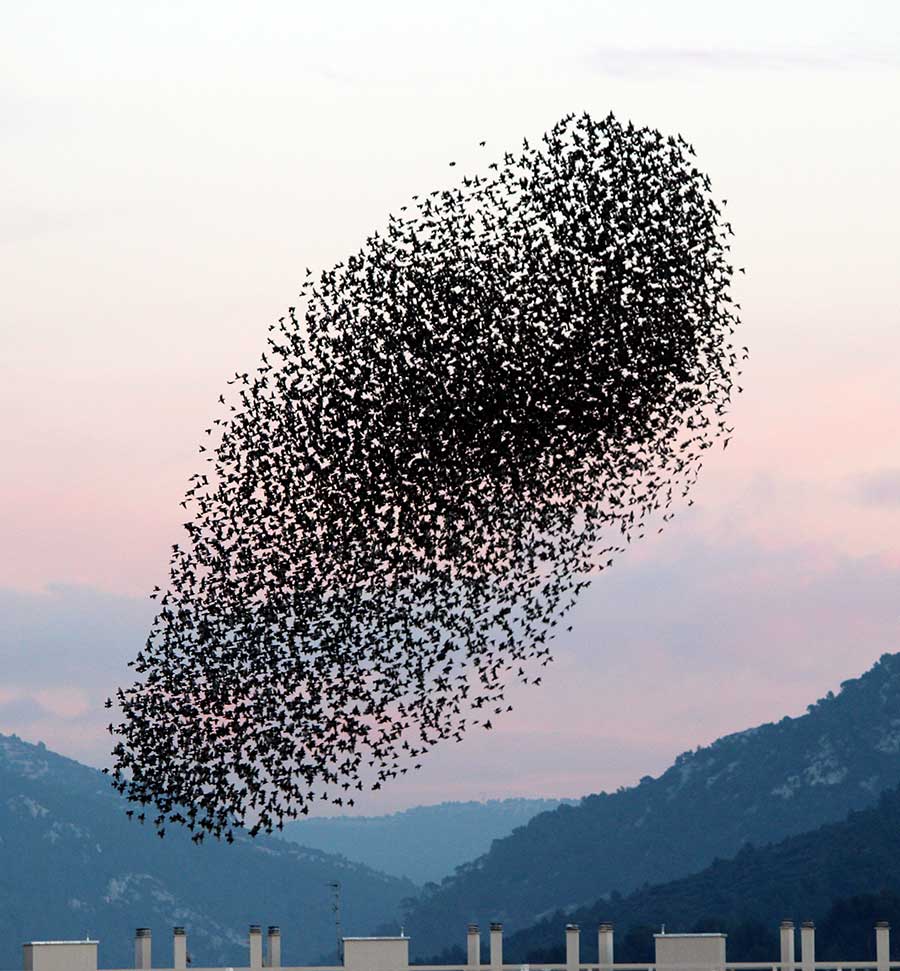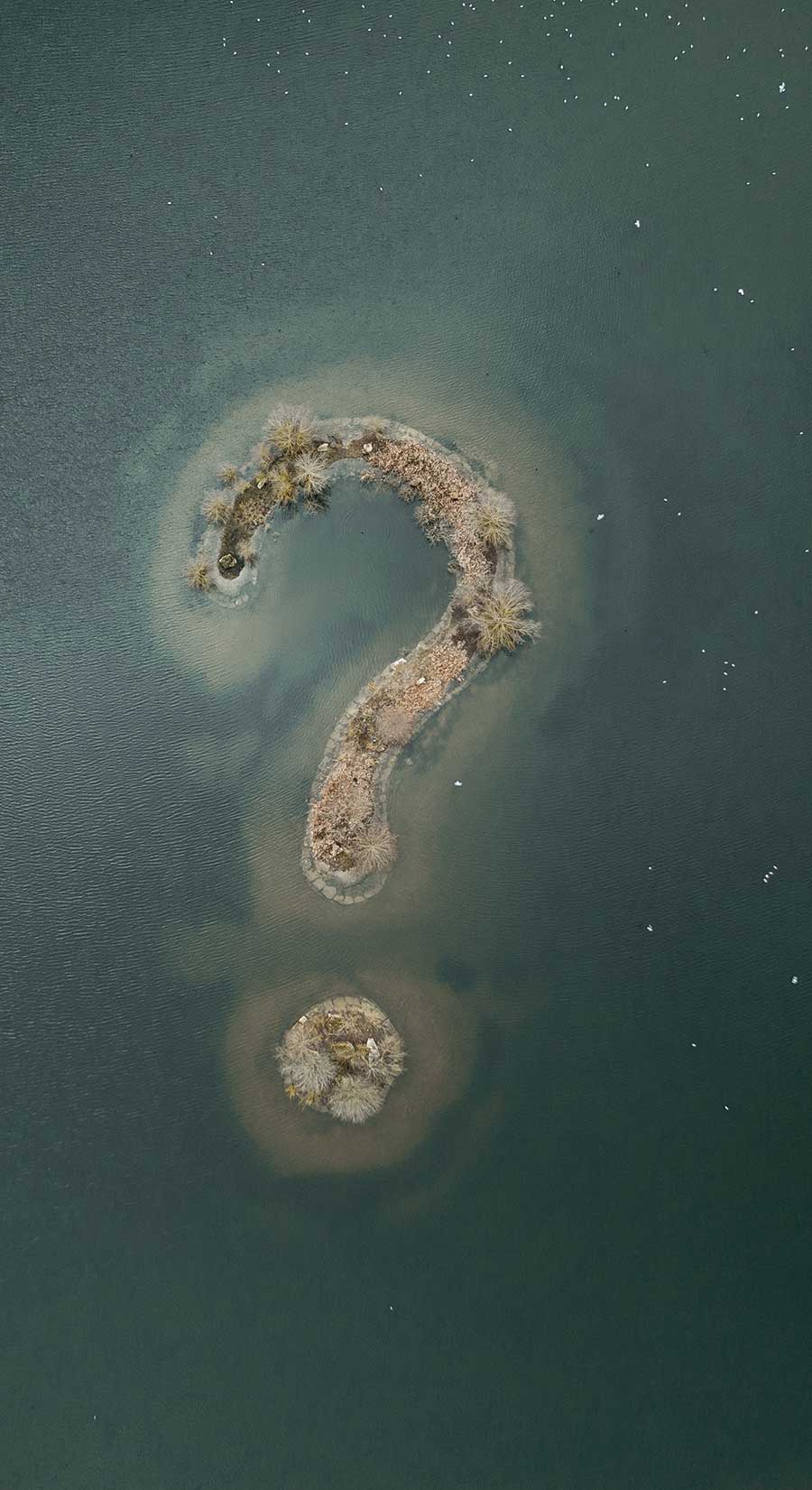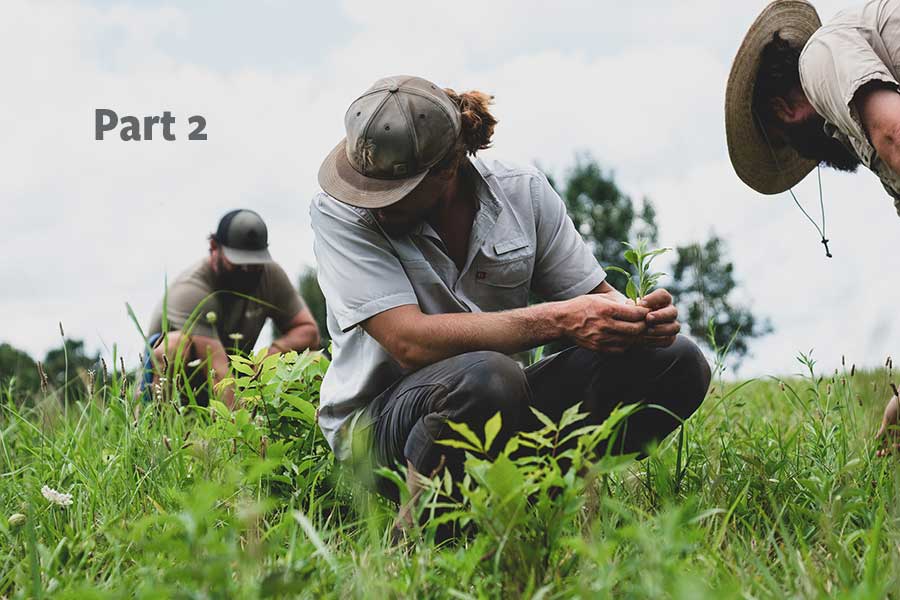emergence from complex systems
Here at Accidental Gods, we believe that we’re on the edge of evolutionary change – this change can be one of consciousness, consciously chosen. We believe that the hypercomplex system that is our interconnected world is on the edge of emergence into something new – and if we’re going to get our heads around this, we need to understand the difference between Complicated and Complex systems. So that’s what this blog is for – a basic look at how these arise, why they matter and how emergence from complex systems might work.
Complicated systems – are really very simple – like a car, or a plane…
So we’re talking about systems, which is to say collections of things that interact, that have boundaries around them and that can reasonably be grouped together. And the first thing to take on board is that Complicated systems are (relatively) straightforward and entirely predictable. They interact in predictable linear fashion which is to say the input is directly proportional to the output.
So a car is a complicated system. A Boeing 747 is an even more complicated system. It’s huge. It has really very large numbers of parts. But it is, in essence, a giant IKEA kit. According to Google, it has 6 million parts, half of which are fasteners. If someone gave you a six million boxes all labelled in the right order, and a really comprehensive instruction set, and the right Allen keys and screwdrivers and the like… you could make your very own airliner. It might not fly first time, but if you knew what you were doing, it would – there are people across the globe taking carbon guzzling flights to prove it. And if a part breaks, it can be fixed and everything goes back to normal. And their actions are defined by the linearity of their input. If I step on the accelerator in my car, it goes faster. If I step harder, it goes faster… faster.


Complex systems, on the other hand… are a whole different kettle of sea-life
Complex systems on the other hand, are not predictable. They are not clockwork, they are defined by their unpredictability. These are things like… a cell, or an organ – like the human brain – or a human body; or an ant colony, or a school of fish or a flock of birds or the population of a city, or even a city neighbourhood, or a political system, or an economy, or the planetary climate, or the ecosystems of land or sea… Complex systems on the other hand, are not predictable. They are not clockwork, they are defined by their unpredictability. These are things like… a cell, or an organ – like the human brain – or a human body; or an ant colony, or a school of fish or a flock of birds or the population of a city, or even a city neighbourhood, or a political system, or an economy, or the planetary climate, or the ecosystems of land or sea…
So basically – the things that people make are complicated because that way we can fix them. The things the rest of creation makes are complex, because that’s how things need to be to work in massively complex biospheres. (And this is why, if you’re over the age of around 26, you’ll find that an increasing number of people in your immediate circle are not getting well when they go to a medical system that still insists that the human organism is a complicated system and if they just change the oil filter one more time, it’ll run like new again…. Energy medicines get that this model doesn’t work.)
Anyway, back to complex systems. These function by positive and negative feedback loops that are absolutely not linear and not predictable and can rapidly lead to exponential responses – so parturition – childbirth – is a positive feedback loop – uterine contractions start and move the foal or the pup or the child down towards the cervix and the pressure there releases more oxytocin that causes stronger contractions that drive it further down towards the cervix and it all keeps going until birth. Or, to take one that’s less charming, if anthropogenic global heating warms up the arctic to the point where the frozen blocks of methane begin to sublimate and release gaseous methane, which boils off and rises up into the atmosphere as it did last summer. And methane is 86 times more potent than CO2 as a greenhouse gas, then we’re heading for a positive feedback loop that could go catastrophic quite quickly. And yes, it will eventually self limit, but that’s on geological time scales and we might not be around to appreciate it.
Tippings points – scary things
So action A creates action B which serves to promote more of Action A… positive feedback and if Action A created Action B which served to reduce the action of A, then we’d have negative feedback.
And the balance of these in most systems leads to the homeostasis that keeps us and when the homeostasis breaks down, the entire systems emerges to something different. Which takes us to emergence
The emergent properties of complex systems are what fascinate me most. In essence, as Prigogine said, a genuinely complex system will increase its complexity up to a threshold beyond which its timeline bifurcates and it either collapses into chaos and extinction OR it emerges to a new system, with new properties that were entirely unpredictable from the state of the previous system.


Caterpillars skating on Ice…
The freezing of water into ice is an easy one to imagine: when the temperature drops and the average kinetic energy of the molecules falls, then they reach a point where the push-pull forces that have kept them moving in fluidity resolve into a new more solid balance and we get snowflakes, or the amazing glass-like structures of ice. Which is what’s known as a phase shift – from solid phase to liquid phase… but this increasingly is being used to describe all emergent systems – like the butterfly emerging from a chrysalis.
This, too, is one we can get our heads around – everyone knows what a caterpillar looks like: you can imagine the green slinky ones or the brown fuzzy ones with the black dots that used to be everywhere up on the island of Skye when I was a kid… and we know they munch leaves and grow big and fat, but only up to a point. Then they slow down and spin themselves a chrysalis and their entire being dissolves into a kind of DNA soup.
Which is a pretty radical phase shift. If that was all, it would be quite impressive – and if you arrived as an Alien out from beyond alpha centauri and didn’t know any planet earth carbon-based biology, I don’t think you’d predict a chrysalis from the caterpillar. But even less would you predict the imaginal cells that arise from the DNA soup, or the ways they are at first rejected as being alien, but they keep arising, and they clump together into little imaginal clumps and some of these are rejected by the DNA soup as well, and broken down, but some keep going and they clump together to make imaginal islands which clump together more and more until what you have is a butterfly or a moth, ready to emerge from the chrysalis. And I absolutely defy you to predict that if you didn’t know it was coming.
And this – the unpredictability – is one of the inherent properties of emergence from complex systems – that the end result is entirely unpredictable from the perspective of the original phase.
Primordial nuclear soup
And that takes us to my other favourite example of emergence from complex systems which is what happened very early in the evolution of consciousness – and of complexity – on our planet.
Leaving aside the philosophical problems of the big bang that Rupert Sheldrake enumerates so well, let’s fast forward in our planet’s history to the point where we have a primordial soup full of prokaryotes – very simple single celled organisms with NO NUCLEUS, a bit like bacteria that consume carbon dioxide and emit oxygen as a waste gas…
This creates a problem because over the milliennia, the oxygen builds up in the atmosphere until it’s reaching toxic levels and displacing the CO2 so, from the point of view of these simple organisms, the future is looking pretty grim… until something happens, and we could argue about exactly what or why, but it’s a spontaneous emergence from the complexity of the existing system – and what emerges are cells with a nucleus – what we call eukaryotic cels – and these metabolise oxygen and emit carbon dioxide as a waste product.


Oxygen – our favourite respiratory gas
And then we’re all set for humanity to arise. Not quite. There’s a lot of interesting gaps in the between… but what I want us to take away from this is – again – that the end result is unpredictable. If you were viewing the prokaryotic soup, facing extinction from its own success in releasing oxygen, you wouldn’t predict the fusion that formed the nucleus and allowed those cells to metabolise the oxygen so it was no longer a problem. That’s the first important take-home point – the utter unpredictability.
But the second – and perhaps more interesting point – is that the problem before the phase shift is no longer a problem after it.
Which is also pretty key – There are clearly a lot of people concerned about the climate and ecological emergency, or the ghastly injustices and inbuilt pain, fear and horror of disaster capitalism, or any of the other issues that assail us… and a great many of these people are endeavouring to fix these systems from the inside. Which is laudable, and understandable.
Why phase shift matters
But I’m pretty sure it’s not going to work. We need a phase shift. We need to become different. I keep saying this, but no problem is solved from the mindset that created it and if we don’t change ourselves, then all we’re doing is creating endless variations on the same theme. We need to be different. Which is pretty cool when you realise that the only thing each of us can reasonably change is ourselves.
So I’m pushing pretty hard for each of us to do the work on ourselves at least along side the work of trying to change our political culture or our economy or our impact on the biosphere. I’m not saying these things don’t need to be addressed, but they can’t be addressed in isolation.


Donella Meadows – Systems Heroine – finding the Leverage Points
So – while we think about this, I want to look briefly at one of the heroes of complexity thinking – Donnella Meadows. Dr Meadows wrote the seminal book, The Limits to Growth which is well worth a look if you have any interest at all in economics, But, here, I want to look at her list of twelve leverage points or Places to Intervene in a system. These came from a paper published by the Sustainability Institute back in 1997, and, for me, they are absolutely crucial to what we’re doing.
Meadows was asked how best to intervene in a complex system to affect change. Given that we know the point of complex systems is that they’re non linear, and unpredictable, changing them is… non linear and unpredictable – and hard. But we can at least nudge them. She came up with a list of twelve leverage points, which she ranked in order of efficacy from the least effective to the most:
12. Numbers: Constants and parameters such as subsidies, taxes, and standards
11. Buffers: The sizes of stabilizing stocks relative to their flows 10. Stock-and-Flow Structures: Physical systems and their nodes of intersection
9. Delays: The lengths of time relative to the rates of system changes
8. Balancing Feedback Loops: The strength of the feedbacks relative to the impacts they are trying to correct
7. Reinforcing Feedback Loops: The strength of the gain of driving loops
6. Information Flows: The structure of who does and does not have access to information
5. Rules: Incentives, punishments, constraints
4. Self-Organization: The power to add, change, or evolve system structure
3. Goals: The purpose or function of the system
2. Paradigms: The mindset out of which the system—its goals, structure, rules, delays, parameters—arises
1. Transcending Paradigms
Changing the Goals of a complex system
As we can see, the least effective lever of change is changing parameters- tweaking the numbers – the tax rate, the subsidies… this is what politicians do because it gives them headlines, not because it makes any serious difference to how equitable a society we live in.
As we go on up through the list, increasing the strength of negative feedback loops, changing the structure of information flows and changing the rules of the system until we reach the third to last level, which is the goals of the system.
So if we could change the goal of our extractive economy from enriching a small number of people, to distributing equally, it would be a fairly big change. But it would still be an extractive economy.
To change this, we have to change the mindset or paradigm out of which the system arises – which is Meadows’ penultimate change.
If we could change our economic paradigm so that it was regenerative, not extractive, that would be huge.


Transcending all systems – an empty-handed leap
But there’s one more lever above this, though – and I didn’t understand this one at all when I was first introduced to this when I was doing the Masters in sustainable economics at Schumacher. Because the very top of list, the most effective lever of change – is – transcending all paradigms.
It took me to this summer when I spent most of the day driving a dying owl from Brecon to Evesham, and the shamanic work that arose from it, to understand the core of this. It’s where we reached the understanding of the final step in the Accidental Gods four-step dance towards conscious evolution, which is Letting Go. Or Making the empty handed leap into the void. And even when I understood this, it took me a while to make the link to Dana Meadows’ levers of change – to understand what a visionary she was, and to mourn again that I never went to listen to her when she was alive.
But still, we can honour her now, for her understanding.
Emergence from the complex system which is our world – changing the direction of travel
Because this is where I think we need to go, because doing the same thing time after time and expecting a different result is the functional definition of insanity.
But – if we can get our heads around the nature of emergence from complex systems the fact that they spontaneously arise of out of chaos… Then we can stop expecting things to be the same.
And even if we don’t know where we’re heading – because phase shift takes us somewhere unimaginable, there are always aspect of the chaos that are ripe for the new emergent phase – the imaginal cells forming clumps in the chrysalis. We need to be those imaginal cells. We’re not the butterfly. We don’t know what the butterfly is going to look like, but we can be in the right place at the right time in enough numbers, for the butterfly to emerge.
So – we need to the work on ourselves so that we can move towards phase shift – And we need to transcend our paradigms – letting go of everything we believe to be true. And yes, I’ve said this before, but I’m hoping this podcast helps to put that into context.
We can become the levers of change. It just takes some mental and emotional flexibility – some resilience – on our part.

SHARE YOUR THOUGHTS
Recent Posts you might enjoy

Kin-centric Rewilding 2 – Bonus – continuation of the conversation with Daniel Firth Griffith
This is the second part of our conversation with Daniel Firth Griffith

Kin-centric Rewilding – restoring relationship to the land and ourselves with Daniel Firth Griffith, author of StagTine
We know we need to move from a Trauma Culture to an Initiation Culture. But knowing these things is not the same as living them as a reality. To get here, we need waymakers, people of huge heart and raw courage to walk away from the limited, goal-based directions of our culture and step into the ways of being where we meet in open-hearted, full-hearted, strong-hearted relationship with the land and all that lives there.

Find the Others! Beyond the Death of Democracy lies Citizen Power – with Jon Alexander of the Citizen Collective
Democracy is breaking around us in real time and a small percentage of those in power would like us to become – at best – obedient subjects in a world dedicated to the destruction of ecosystems and the annihilation of compassion, empathy and all that makes use thrive. Clearly, we are better than this. So how can we harness the astonishing wonder of human co-creation in service to life and a world where humanity thrives as part of a flourishing web of life?

Of Schoolishness, Space and Emergence into vibrant systems: a joint podcast with Tim Logan of Future Learning Design
If what our culture most urgently needs is for a critical mass of us to grow into adults and then elders, how can we help our young people to step beyond the artificial boundaries of our old, rigid system into a world where they are fully connected to all parts of themselves, each other and the web of life. How, in effect, can we create an educational system that is fit for purpose in the emerging century?

Living through the Death of Democracy: Manda’s thoughts on love, liberty and the continued existence of complex life on earth
We are living through the death of democracy and the onset of Techno-Feudalism. But this is not a time when linear systems can hold and feudalism was nothing if not linear. So how can we be part of a transformative process that will let us lay the foundations for a future we’d be proud to leave behind?

HeartFood – Healing our communities with Food grown on Regenerative Farms with Erin Martin of FreshRxOK
What happens when people with chronic, unstable diabetes eat food grown in local, regenerative farms? Erin Martin shares the dramatic improvements in health her group FreshRxOK saw in Oklahoma when they instigated a ‘Food as Medicine’ programme, offering real food with good nutrient density to diabetic patients in some of the poorest communities.

Radical Creativity: creating a Global Council of Women with Jenny Grettve of EIT Culture and Creativity
If we were to step into elder hood and bring the best of ourselves to the table, could we create governance structures that would help to heal our cultural divides, create equity and guide is wisely through the coming crisis?Jenny Grettve believes we can and has set up a global council to make this happen.

The Phoenix Always Rises: Evolving into the Future Human with Prof Chris Bache, Author of LSD and the Mind of the Universe
Five years ago when we began, it was possible to imagine that the world might stabilise with a vestige of the old system as a scaffold for the new. That assumption is growing increasingly ragged. It’s now clear that the shifts we need to be in the world are primarily inner; that the truly urgent work is in healing both our own and the global human psyches, that we need urgently to remember how to connect with the web of life so that we can ask it ‘What do you want of me?’ and respond to the answers in real time. That we need, in short. to evolve.

Democracy Rising: Making 2025 the year we recover from Peak Polarisation with Audrey Tang
Is it possible that 2024 might be the year of ‘Peak polarisation’? Audrey Tang certainly thinks so and in this wide-deep, mind-expanding conversation, we explore everything from the dual nature of AGI to the potential for liberational education that gives young people a sense of agency, interaction and the common good, to ways to rescue democracy to recipes for sound sleep.

Heart of Oak: Talking Druidry, Spirituality and the nature of Magic in the MetaCrisis with Philip Carr-Gomm
How is Druidry alive in the contemporary world? What are the values and practices that make it so suited to the inflexion point of the moment? Why – and how – does it mesh so well with other, more spiritual traditions? And how does the practice of Will, the honing of intent, create the magic we need to see in our world?

Solstice Cheer: Three Friends uphold a Podcasting Tradition with Della Duncan, Nathalie Nahai and Manda Scott
By any measure, this year has been pretty turbulent and our capacity to predict anything at all for 2025 is fairly ragged, but that doesn’t stop us from celebrating Della’s news, and sharing the ways we find stability and maintain sanity in a world that feels increasingly precarious. Whatever else is happening, friendship is the glue that builds community and all of us – we who make the podcasts and everyone who listens – are building a de facto community of passion and purpose. So thank you for being there. I hope you enjoy what follows.

Seven Generations Perspective Meditation for December 2024
This meditation aims to offer a long-wide-deep perspective on our place as conscious nodes in the web of life – the journey that brought us here and the places humanity may go. Please give yourself plenty of time both to experience the journey and to reflect afterwards. If it helps to write down your feelings, images, ideas or sensations afterwards, please do.
0 Comments